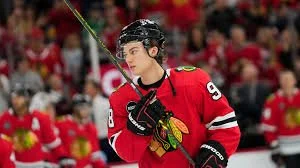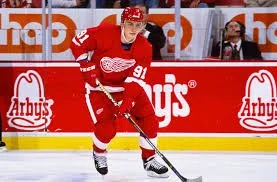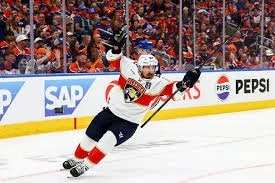The “Heroes” and the “Hated”: Why Both Are Necessary to Build a Great Athlete
Let’s start with the basics. A hero, according to Google (because where else do we start these days?), is “a person who is admired or idealized for courage, outstanding achievements, or noble qualities.” Sounds about right—cue the Olympic gold medalist, the team captain, or the local high school star your kid follows like they invented slap shots.
On the other side of the rink, we’ve got the hated. Google defines hate as “a feeling of intense or passionate dislike for someone or something.” So in the context of youth sports, the "hated" might be a rival player, a cocky professional your kid loves to hate, or even—gasp—a coach who benched them one time in Squirts for not backchecking.
Now, before you start wondering why we’re encouraging your child to "hate" anyone (we’re not), stay with me. This article is about why both the admired and the despised play an essential role in your child’s growth—not just as an athlete, but as a person.
Why Heroes Matter: The Fuel of Aspiration
Let’s talk about heroes first. Every young athlete, at some point, finds that one person who makes them believe that greatness is possible.
Maybe it’s a household name:
Connor Bedard -- “He’s not much older than me, Dad. And he’s already in the NHL!”
Hilary Knight -- “She’s so strong, and she NEVER gives up.”
Cale Makar -- “I wanna skate the blue line like that someday.”
Carey Price -- “He’s cool under pressure. And his gear looks sick.”
Connor McDavid -- “First overall draft pick and arguably the best player in the world currently.”
Sergei Fedorov – “He was the Legend on Nike skates that put the Red Wings on the map again!”
Or it could be closer to home:
A high school senior who just committed D1.
A local coach who still plays adult league and dominates.
A team captain who always encourages the younger kids.
Heck, sometimes it's YOU. (Note: if your kid says their hero is you, pause your life and go get that framed.)
What Heroes Provide:
Vision – They show your kid what “next level” looks like.
Imitation – Your kid tries to skate, shoot, or carry themselves like their hero.
Inspiration – They get off TikTok and outside to shoot pucks. That’s magic.
Hope – If their hero faced adversity and came out stronger, they believe they can too.
Even a flawed hero offers lessons. Think of Austin Matthews or P.K. Subban—players who’ve been both celebrated and criticized. Your child learns to see people as whole and complex. That’s an emotional upgrade few video games provide. Not even Fortnite…..
Why “The Hated” Matter Too: The Power of Opposition
Now, onto the “hated.” The eye-rollers. The jaw-clenchers. The Cheek lickers… Looking at you Marchand. The “Dad, he’s such a puck hog” type of athletes.
These aren’t just people your child dislikes. They’re often the ones who beat them, taunt them, or challenge their sense of fairness, identity, or self-worth.
And yet—they’re just as important.
Common “Hated” Types in Youth Hockey:
The Rival Star – “Every time we play (insert team here), number 16 scores a hat trick. Every time.”
The Trash Talker – “He chirped me the whole shift and then toe-dragged our whole D.”
The Hotdog – “He celebrates like he won the Stanley Cup… in a U12 game.”
The Coach’s Kid – “He never gets benched even when he messes up.”
The Bencher – “My old coach who never gave me a chance. He hated me.”
The NHL Villain – “Brad Marchand. I don’t care if he’s good. He licks people!”
Why They Matter:
They Build Grit – Your child trains harder to beat them.
They Clarify Values – “I don’t want to be like that guy.”
They Fuel Competitive Fire – Anger turns into motivation when channeled properly.
They Teach Emotional Control – You can’t punch every kid who slashes you. Even when it might feel necessary.
They Force Growth – Rivalry = Adaptation. Adaptation = Progress.
Here’s the secret: many kids hate players they secretly wish they could beat, outwork, or even be. Help your child peel back the emotion onion and discover what that hatred is telling them about their own dreams, insecurities, and drive.
True Story Time (Yes, These Are Real Hockey Moments)
The AAA Peewee Nemesis:
My son played against a kid we’ll call “Montreal.” Montreal scored every time they played. Multiple times. He paraded like the Cup final just happened. He’d grin. He’d chirp. He’d act like he owned the ice. My kid hated Montreal.
But he also started stickhandling every day, roller blading more often, training harder in the gym and watching more strategy videos. Montreal, unintentionally, made my son better.
The Parent’s Role: Guide the Emotion, Don’t Shut It Down
You don’t need to be a sports psychologist to help your kid learn from these emotional experiences. You just need to stay curious, and educated.
1. Normalize the Feeling
“It’s okay not to like someone on the ice. What matters is how you respond.”
2. Ask Better Questions
Instead of: “Don’t say that!”
Try: “What is it about them that bothers you?”
You’ll often hear: “He thinks he’s better than everyone.”
Which leads to: “Why do you think that gets under your skin?”
3. Redirect to Growth
“What can you do to make sure you don’t become that kind of player—or that you beat that player fair and square?”
4. Model Respect for Opponents
No screaming “knock his head off!” from the stands. Your kid watches your body language and mimics your emotional tone.
The Balance: A Healthy Mental Diet
Think of your child’s athletic identity like a recipe:
Heroes are the sweeteners. They make things exciting. They offer possibilities.
The Hated are the spice. A little bitterness brings out depth and strength.
You, the parent, are the chef. You decide what gets stirred in, when to turn down the heat, and when to let it simmer.
Too much sweetness? Entitlement.
Too much spice? Burnout.
The right mix? Resilience, motivation, and perspective.
Final Word: We’re All Just Characters in Each Other’s Story
Today’s hated rival might become tomorrow’s friend and teammate.
Today’s hero might have a scandal and crash from the pedestal.
Today’s frustrated athlete might become tomorrow’s captain.
Your job is to help your child navigate these emotional landscapes with grace, curiosity, and humor.
So let them love their heroes. Let them glare at their rivals. Let them feel it all.
Just make sure they don’t forget to learn from it.
Because ultimately, the goal isn’t just to raise a great athlete.
It’s to raise a good human—with grit, humility, heart, and just enough fire to chase the dream.
Don’t forget to Subscribe to the Dasher Dad Hockey mailing list
Where parenting, hockey, and humor come together—so you don’t have to lose your mind in the penalty box of life.




